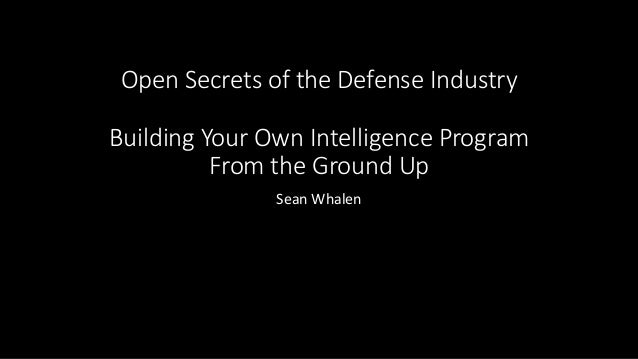How To Open Defanged File
.0xe files are defanged executables. Some security tools rename a file from.exe to.0xe if they suspect the file is a trojan, virus, or has been compromised in some way. This prevents the file from executing. If you are 100% sure the file is safe, you can simply rename it back to.exe - but be sure.
Sky hd box usb port hacked. Had alittle search around a think i know the answer just would like to be told on here as there are a few conflicting articles on google.With 3.7 hitting my area i have taken out a sky hd box and subscription, feels weird paying for it after such a lengthly run on cable but we knew the time would come.I am not looking for a hack for free channels as i am happy to pay for what i receive, what i would like to do is maybe open the usb ports for external hard drive capability's etc.Are there any mods or tricks out there for my sky HD box???Thanks in advance for any advice:cheers.
The mood was triumphant on the morning of July 21, 2010, when Barack Obama, not quite two years into his presidency, strode to a podium inside the Ronald Reagan Building, a few blocks from the White House. As he prepared to sign the Dodd-Frank Wall Street Reform and Consumer Protection Act—the sweeping legislative package designed to prevent another spectacular financial collapse—into law, the president first acknowledged the miracle of having a bill to sign at all. “Passing thiswas no easy task,” he told the crowd of hundreds. “We had to overcome the furious lobbying of an array of powerful interest groups and a partisan minority determined to block change.”.
Indeed, some 3,000 lobbyists had swarmed the Capitol in hopes of killing off pieces of the proposed bill—nearly six lobbyists for every member of Congress. For Michael Barr, then an assistant secretary at the Treasury Department, the trench warfare spurred by Dodd-Frank left him shellshocked. “You pick a page at random,” says Barr, now a law professor at the University of Michigan, “and I’ll tell you about all the issues on that page where the fighting was intense.” Remarkably, despite the onslaught, Dodd-Frank “got stronger rather than weaker the closer we got to passage, which is incredibly unusual,” says Lisa Donner, executive director of Americans for Financial Reform, one of a handful of advocacy groups that fought tenaciously for the bill.That sense of victory barely lasted the morning. The same financial behemoths that had fought so ferociously to block Dodd-Frank were not going to let the mere fact of the bill’s passage ruin their plans. “Halftime,” shrugged Scott Talbott, chief lobbyist for the Financial Services Roundtable, a lobbying group representing 100 of the country’s largest financial institutions. It was 5:30 am on a Friday when a joint House-Senate conference committee approved the bill’s final language. By Sunday, an industry lawyer named Annette Nazareth—a former top official at the Securities and Exchange Commission whose firm counts JPMorgan Chase and Goldman Sachs among its clients—had already sent off a heavily annotated copy of the 848-page bill to colleagues at her old agency.
According to a congressional staffer whose boss was a key architect of Dodd-Frank, Nazareth is one of two “generals” running the campaign to undo the bill. The other is Eugene Scalia, a fearsome litigator and son of the Supreme Court justice. After Dodd-Frank’s passage, lobbyists for the big banks and industry trade groups divided themselves into eighteen working groups, each organized around a different element of the new law. “That’s when the real work began,” Talbott tells me. One working group focused on derivatives reform, including the requirement that these complex financial instruments now be sold on open exchanges in the fashion of stocks and bonds. Another focused on efforts to hammer out the so-called Volcker Rule, which would limit the ability of federally insured banks to wager on risky ventures.
A third tackled the new Consumer Financial Protection Bureau (CFPB), created to protect ordinary consumers from Wall Street deceptions involving mortgages, credit cards and other major profit centers for the banks. In the months leading up to Dodd-Frank’s passage, the big story was the staggering sums of money being spent by the industry to defeat the bill—more than $1 billion on lobbying alone, according to one estimate. Yet, incredibly, the financial sector dramatically increased its spending after Dodd-Frank was signed. Whereas commercial banks such as Wells Fargo, Citigroup and JPMorgan Chase, along with their trade groups, spent $55 million lobbying in 2010 (the year Dodd-Frank became law), they would collectively spend $61 million in 2011 and again in 2012, according to OpenSecrets.org. The twenty-eight lobbyists Talbott has on the payroll at the Financial Services Roundtable makes it relative small fry. The American Bankers Association has ninety-one lobbyists representing its interests, while the US Chamber of Commerce has 183. Goldman Sachs has fifty-one lobbyists, JPMorgan Chase sixty, and even the obscure-sounding Securities Industry and Financial Markets Association is armed to the teeth, hiring the services of forty-nine lobbyists.Even so, those numbers don’t begin to capture the army of people being paid exorbitant sums to beat back reform.
Dell sp2309w driver. “The lobbyists are just the point of the spear,” said Ed Mierzwinski, director of consumer programs for the US Public Interest Research Group (PIRG).
